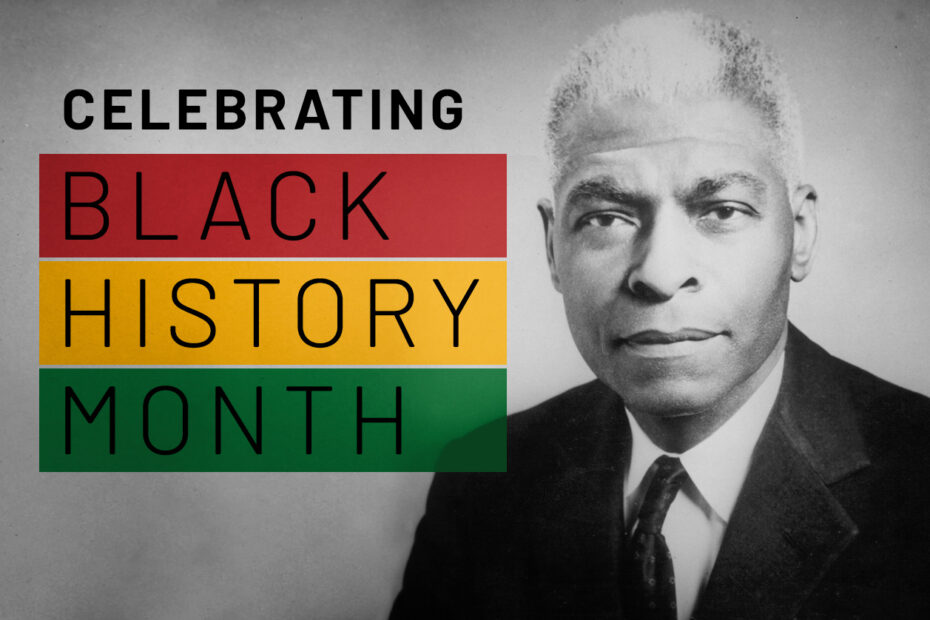As we acknowledge and celebrate Black History Month, it is necessary that we expound on the historical significance of the African American ministers and their impact on social justice. On a global level, social justice involves the fair and equitable distribution and dissemination of resources, opportunities, and privileges in society. Within the African American experience, its definition is largely the same. With an intentional focus on access and education leveraged across generations. Though social justice today is conceptualized in a broader context, it was originally held as a religious concept. Particularly within the African American Christian experience. Church leaders and ministers were often the face of social justice and its primary proponents.
One such proponent of social justice was Dr. Benjamin E. Mays, who was not only an ordained minister, but a well-educated philanthropist and champion of social justice for African Americans. He enjoyed a nearly three-decade tenure as the sixth president of Morehouse College in Atlanta, Georgia from 1940-1967. During this time, he would greatly influence burgeoning civil rights activists such as Maynard Jackson, Julian Bond, and Martin Luther King, Jr., by way of intellectual methodologies undergirded by a guiding and governing spirituality. Dr. Mays held a philosophy that the Negro was limited only by the constraints he accepted within his mind and believed access to education was a significant key to unlocking social justice.
Like many ministers of his time, Dr. Mays traversed the terrain of engaging social justice. He decried inequities and injustice and conveyed the hope found in Christ with admirable agility and nimbleness. With a prominent role, such as President of Morehouse College, Dr. Mays was privileged with access to the White House. He served as an advisor to Presidents Kennedy, Johnson, and Carter. He effectively secured a seat at prominent tables. And was able to bring the issues relevant to the African American communities of his time to the forefront of conversations.
With social justice consistently on his agenda, Dr. Mays was able to leverage his influence and knowledge to secure funding to create more robust programs in educational institutions for African Americans. Some of these very programs would serve to educate the minds and hearts of future activists and civil rights leaders, engendering the intellectual and spiritual wherewithal for the mission of social justice they would undertake.
With a philosophy entrenched in the belief that access to education was an essential component for social justice, it is no surprise that Dr. Benjamin Mays has been credited with laying the intellectual foundation that would give birth to the Civil Rights Movement. His influence can be seen today in the scores of African American ministers who navigate the duty of sharing the Gospel of Jesus Christ, while admonishing the congregants on the need to educate themselves regarding social justice issues and actively speaking truth to power. Dr. Mays’ balanced approach to social justice can be witnessed in today’s ministers who nimbly balance walking in an awareness of the injustices that must be made right and a complete dependence on Christ to change the hearts of men and women.
During Black History Month, ACST is proud to celebrate the achievements of African Americans like Dr. Mays. We’re pleased and honored to recognize their role within the African American Christian experience.
Robert Dion Maxwell was born and raised in Detroit, Michigan, to the union of William Maxwell and
Nancy Morton-Maxwell. He holds a Bachelor of Arts degree in Psychology from Oral Roberts University
and a Master of Business Administration degree from Keller Graduate School. He is currently pursuing
his Ph.D. in Business Psychology at the Chicago School of Professional Psychology.
Robert was licensed to preach the Gospel and later ordained as an elder of the church under the
leadership of Bishop Paul S. Morton, Sr. while serving faithfully at Changing a Generation Full Gospel
Baptist Church in Atlanta, Georgia. Vocationally, he currently serves as the Director of Communications
at Elizabeth Baptist Church under the leadership of Dr. Craig L. Oliver, Sr. He also serves as the personal
assistant to Dr. Oliver as well as a member of the Collaborative Preaching Team of Elizabeth Baptist
Church. He and his wife Sherita are the proud parents of two children, Jaden Robert Maxwell and
Sydney Elise Maxwell.




